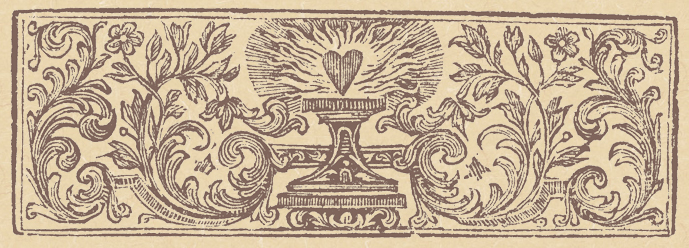No Low-Sodium Diet for the Christian Soul.
The Tenth Tuesday of Ordinary Time.
Lessons from the secondary feria, according to the ordinary form of the Roman Rite:
• I Kings 17: 7-16.
• Psalm 4: 2-5, 7-8.
• Matthew 5: 13-16.
The Third Tuesday after Pentecost.
Lessons from the dominica,* according to the extraordinary form of the Roman Rite:
• I Peter 5: 6-11.
• Psalm 54: 23, 17, 19.
• Luke 15: 1-10.
The Third Tuesday of the Apostles Fast; the Feast of the Holy Martyr Theodotus, Bishop of Ancyra; and, the Feast of the Holy Martyrs Cyriaca, Valeria & Maria.
Lessons from the pentecostarion, according to the Ruthenian recension of the Byzantine Rite:
• Romans 9: 18-23.
• Matthew 11: 2-15.
FatherVenditti.com
|
 9:57 AM 6/7/2016 — The first lesson of today's Mass, from the First Book of Kings, is the one to which I made reference on Sunday as occurring just prior to Sunday's first lesson in which Elijah raises the widow's son from the dead. It's the story of his first meeting with her, in which she makes him the rice cake and is rewarded for her generosity with an abundance of food in the midst of a great famine. Why these lessons are being presented in reverse order I can't tell you; and, since the first lessons and Gospel lessons for ferial days this time of year follow independent cycles, any connection we might come up with to pair them with each other would be purely artificial. 9:57 AM 6/7/2016 — The first lesson of today's Mass, from the First Book of Kings, is the one to which I made reference on Sunday as occurring just prior to Sunday's first lesson in which Elijah raises the widow's son from the dead. It's the story of his first meeting with her, in which she makes him the rice cake and is rewarded for her generosity with an abundance of food in the midst of a great famine. Why these lessons are being presented in reverse order I can't tell you; and, since the first lessons and Gospel lessons for ferial days this time of year follow independent cycles, any connection we might come up with to pair them with each other would be purely artificial.
But we will see this lesson again, on one of the very last Sundays of Ordinary Time (secondary dominica of the 32nd Sunday), on which it will be meaningfully paired with the Gospel of the Widow's Mite (cf. Mark 12: 38-44), and that pairing will make the opening point from last Sunday's homily more pointedly, focusing on the whole subject of generosity.
But if you're in the mood for artificial connections, I can give you one, linking today's Gospel lesson with the feast of the Sacred Heart we just celebrated last Friday, in which we had reviewed the graces our Lord had promised Saint Margaret Mary He would give to those who honored His Most Sacred Heart and spread that devotion, one of which was: “Tepid souls will be made fervent.” What is a tepid soul? “Tepid” is just another word for “lukewarm”; depending on your dictionary, it can also mean “sterile” or even “bland.” A tepid soul is a soul who doesn't care anymore. Perhaps it once did, but now it's played out. In today's lesson, our Lord uses the image of salt which has lost its flavor: why would anyone even keep it around? Apart from deliberate sin, this is the saddest thing that can happen to a Christian soul.
A Christian is called not only to work out his own salvation, but to be a light to others. When his soul falls suddenly into the darkness of mortal sin because of some unexpected temptation, he usually knows it, and he knows the remedy; but, when a soul becomes tepid, it usually happens very gradually: he slowly begins to lose interest, he starts to make excuses for himself with regard to his religious obligations, he begins to cut corners in his spiritual exercises; and, before he knows it—and usually without him noticing it—not only has he ceased to be a light to others, but he himself has become disoriented and aimless. What was once a Christian character filled with zeal becomes a pathetic example of nothing but weakness; and, before too long, he falls into mortal sin.
Why does an ardent soul become tepid? The most common cause is a failure to check the infection of habitual venial sin. Venial sins, as you know, are not nearly as serious as deliberate mortal sins, and can even be forgiven outside of confession by simply receiving Holy Communion, but that doesn't mean they can be ignored. A penny doesn't weigh very much, but a ten gallon sack of pennies can throw out the back of a strong man; and, when we allow our little venial sins to go on and on for months or even years without doing something to break the cycle, our whole spiritual constitution suffers.  Eventually, the Christian soul no longer sees Christ clearly on the horizon of his life. Because he has been consistently careless regarding the little details that prove his love for our Lord, he discovers that Christ now seems far removed from him. His interior life undergoes a slow but profound change; it no longer has Jesus as its focal point. The soul which has become tepid finds that his practices of piety have become empty of content; he no longer puts his heart into them. He goes through the motions, performing them out of routine or habit, but not out of love. Eventually, the Christian soul no longer sees Christ clearly on the horizon of his life. Because he has been consistently careless regarding the little details that prove his love for our Lord, he discovers that Christ now seems far removed from him. His interior life undergoes a slow but profound change; it no longer has Jesus as its focal point. The soul which has become tepid finds that his practices of piety have become empty of content; he no longer puts his heart into them. He goes through the motions, performing them out of routine or habit, but not out of love.
A tepid soul is a soul that is “inside out.” He has grown weary of trying to improve. No longer in constant communion with God in prayer, he begins to regard God as far away and removed and, in his apostolic endeavors, he's willing to settle for much less. Saint Thomas Aquinas, in the Summa, cites a feature of this state as “a kind of sadness, whereby a man becomes sluggish in spiritual exercises because they weary the body” (Summa Theogogiæ, 1, 63, 2.). The simplest acts of devotion—even assisting at Holy Mass—become burdens for him.
Now, that all being said, we mustn't make the mistake of confusing tepidness of soul with that sensation of dryness that comes upon every soul from time to time; and, many of you who have come to me in confession have heard me warn you about reading too much into that, as that happens to everyone, which is why I keep recommending The Dark Night of the Soul by Saint John of the Cross. A soul going through a dark night is not a tepid soul. There's no cure for the Dark Night of the Soul other than perseverance;—it's just something that has to be waited out—but, a tepid soul is no longer waiting: he's just given up because he no longer cares. That's how you can tell the difference: the tepid soul never complains to the priest in confession that he's finding it hard to pray, because he no longer has any interest in praying. Nor can we make the mistake of equating our feelings for union with God, which is the primary reason we pass through these periodic dark nights. If we allow ourselves to expect our prayer to always be accompanied by good feelings, then we've completely missed the point of prayer itself. Sometimes God allows our interior life to fall into a dark night for the very purpose of making this point to us, so that we aren't relying on feelings and emotions to fuel our relationship with Him. Emotions and good feelings can sometimes be made to serve in developing true devotion, but they can never become the reason for it. One spiritual writer once said,
To allow oneself to be guided by feelings would be like handing over the management of one's house to a servant whilst you as its real owner abdicate responsibility for it. It is not feelings that are bad, but rather the degree of importance we attribute to them… (J. Tissot, The Interior Life, p. 100).
So, while our Blessed Lord is quite correct, that salt without flavor “is no longer good for anything but to be thrown out and trampled underfoot” (Matt. 5: 13 NABRE), simple dryness and aridity can be the positive sign that God wants to purify us toward a particular end. Let's ask our Blessed Lord today for the wisdom to know the difference.
But let us also consider in our prayer today whether we are going forward with the firmness and confidence that Jesus asks of us, whether we regard our conversation with Him as the treasure which enables our interior life, and whether we are properly nourishing our love for Him with frequent recourse to the sacraments.

* In the extraordinary form, on the ferial days outside of privileged seasons, the lessons are repeated from the previous Sunday.
|

